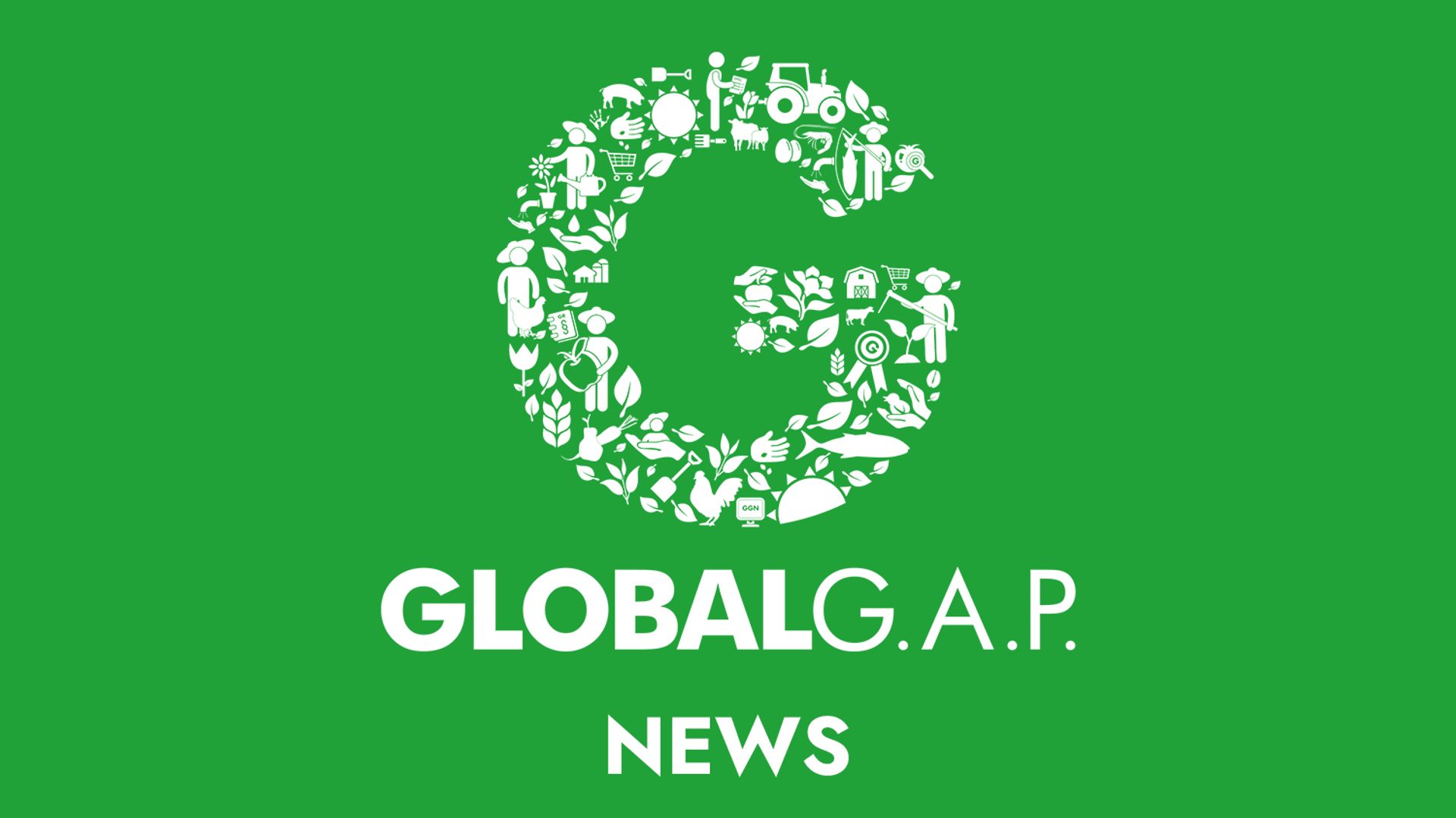08 November 2022
GLOBALG.A.P. statement on GAP Research Institute’s Common GAP Mark
GLOBALG.A.P. wishes to clarify that the Common GAP Mark is not a joint initiative, and that the GAP Research Institute is not a GLOBALG.A.P. Community Member.
It has come to the attention of GLOBALG.A.P. that Japan’s GAP Research Institute is planning to promote a new “Common GAP Mark” initiative – a consumer label for agricultural and livestock products certified to the ASIAGAP, JGAP, and GLOBALG.A.P. schemes, among other possible options.
GLOBALG.A.P. wishes to clarify that the Common GAP Mark is not a joint initiative, and that the GAP Research Institute is not a GLOBALG.A.P. Community Member nor affiliated with GLOBALG.A.P. in any way.
The only consumer label that is officially affiliated with GLOBALG.A.P. standards – and therefore operates under the necessary verification and integrity that the GLOBALG.A.P. system provides – is the GGN label, owned by FoodPLUS GmbH.
Taking into account the documentation made available to us, GLOBALG.A.P. expresses deep concern that B2C solutions without sound requirements and robust verification processes have the potential to both mislead consumers and put the reputation of producers, supply chain stakeholders, and retailers at risk.
With the exception of a self-declaration on certification, a sublicense agreement, and acceptance by the GAP Research Institute, the label regulations published by the organization contain no rules on traceability and real time verification of the producer’s certification status.
According to the GAP Research Institute's regulations, producer certification status is not verified prior to labeling, and the Common GAP Mark label is not supported by supply chain traceability – meaning the proper identification, segregation, and integrity of products from certified production cannot be monitored or guaranteed. This greatly increases the possibility of food fraud as the authenticity of products from certified farms cannot be traced throughout the supply chain.
The GGN label for certified, responsible farming and transparency
The GGN label for agriculture, aquaculture, and floriculture is based on GLOBALG.A.P. standards for safe, socially and environmentally responsible farming practices. These standards and add-ons have been in operation for over 25 years and represent the most widely-adopted farm assurance solutions worldwide – currently used by over 200,000 producers in more than 130 countries.
GLOBALG.A.P. standards are recognized by the GFSI and are audited annually by independent, third-party certification bodies. Their delivery and implementation is also monitored by the industry-leading GLOBALG.A.P. Integrity Program to ensure their consistent application worldwide.
First launched in 2016, products with the GGN label can now be found in-store in 40 countries on five continents. It provides reassurance to consumers in three fundamental ways:
A high level of farm assurance, including social practices, must be implemented and verified before a GGN label license agreement is granted.
Whereas the Common GAP Mark permits unverified self-declaration of certification to one of three standards, the GGN label requires real time verification of certification to GLOBALG.A.P. Integrated Farm Assurance (IFA) or a benchmarked equivalent for each specified product through the GLOBALG.A.P. IT systems before a GGN label license is granted. The same process applies to verification of full compliance with the GRASP assessment at farm level to demonstrate social responsibility. This is vital for both domestic and imported products, particularly in selected high-risk cases.
Supply chain segregation and traceability is safeguarded through GLOBALG.A.P. Chain of Custody (CoC) certification
Whereas the Common GAP Mark does not require any proof of supply chain segregation, the GGN label requires CoC certification for the entire supply chain (until the point of packaging). The CoC standard specifies strict requirements for the proper segregation, handling, and tracing of products in the supply chain and ensures that products bearing the GGN label are truly sourced from certified production processes. This mechanism is in place to minimize the risk of accidental or intentional food fraud as far as possible.
Transparency via the GGN label portal
As an additional way of promoting trust among consumers, all products with the label feature a 13-digit identification code in the form of a GLOBALG.A.P. Number (GGN) or Chain of Custody (CoC) Number. Through the dedicated GGN label portal, consumers can find all the relevant traceability information connected with the product.
GLOBALG.A.P. certification claims remain exclusively for business-to-business use and must be based on valid and verifiable certificates. Business-to-consumer communication is strictly limited to the cross-category GGN label.
Verification, segregation, and traceability are vital for system credibility
The integrity of consumer labeling is essential to both building trust in the market and helping shoppers to make informed choices. The requirements and verification processes of the GGN label ensure that the reputation of sector stakeholders is safeguarded and that the supply chain can operate with confidence.
Mitigating exposure to reputational risk can only be achieved within a credible, closed-loop system that protects the status of products originating from certified production and offers transparency and traceability across every stage of the supply chain. The Common GAP Mark does not meet this criteria, and in practice may even undermine the key issues – such as food safety and workers’ welfare – that are behind its introduction.
For further information, or to raise questions and concerns, please contact pressoffice@globalgap.org
-----------------------
日本のGAP総合研究所の共通GAPマークに関するGLOBALG.A.P.の声明(日本語参考訳)
ドイツ、ケルン(2022年10月27日)。日本の特定非営利活動法人GAP総合研究所(以下、GAP総合研究所)が、ASIAGAP、JGAP、GLOBALG.A.P.の各スキーム並びに他のGAP認証を受けた農畜産物の消費者ラベルである「共通GAPマーク」イニシアティブを推進しようとしていることを、GLOBALG.A.P.は懸念しています。
GLOBALG.A.P.は、共通GAPマークがGLOBALG.A.P.との共同のイニシアティブではないこと、GAP総合研究所はGLOBALG.A.P.のコミュニティメンバーではなく、GLOBALG.A.P.とは一切関係がないことを明確にしたいと思っています。
GLOBALG.A.P.規格に公式に準拠し、GLOBALG.A.P.システムが提供する検証や高潔性の下で運用されている消費者ラベルは、FoodPLUS GmbHが所有するGGN ラベルが唯一のものです。
GLOBALG.A.P.は、入手した文書に関して、理に適った要件と堅固な検証プロセスがないB2Cソリューションが、消費者を惑わし、生産者、サプライチェーン関係者および小売業者の評判を危険にさらす可能性があることに強い懸念を示します。
認証に関する自己宣言、サブライセンス契約、GAP総合研究所による承諾などを除き、同団体が発表したラベル規則 には、トレーサビリティや認証保持状況のリアルタイム検証に関する要求がありません。
GAP総合研究所の規格では、生産者の認証取得状況がラベルを付ける前に確認されず、共通GAPマークのラベルはサプライチェーンのトレーサビリティが確保されているといえません。つまり認証を取得した農場に由来する製品の適切な識別、分別、高潔性を監視または保証することができません。このため、認証農場で生産された製品の信憑性をサプライチェーン全体で追跡することができず、食品偽装の可能性を非常に高めることになりかねません。
認証取得済みの責任ある農業生産と透明性を示すGGNラベル
農業、水産養殖、花卉栽培を対象とする GGNラベルは、安全で社会的、環境的に責任ある農業慣行を実践するためのGLOBALG.A.P.基準に基づいています。これらの基準とアドオンは25年以上にわたって運用され、現在では130カ国以上、20万人以上の生産者に利用されている、世界で最も広く採用されている農場保証ソリューションです。
GLOBALG.A.P.基準はGFSIによって認められ、独立した第三者認証機関によって毎年監査が行われています。また、その認証交付や適合性評価は、業界をリードするGLOBALG.A.P. 高潔性プログラムによって監視され、世界中で一貫して適用されています。
GGNラベルのついた製品は2016年に初めて発売され、現在では、5大陸40カ国の店頭で見かけるようになりました。これは、3つの基本的な方法で消費者に安心感を与えるものです。
1) GGNラベルのライセンス契約が付与される前に、社会的慣行を含む高いレベルの農場保証を実施し、検証する必要があります。
共通GAPマークは、3つの基準のうち1つを認証していることを無証明で自己申告できるのに対し、GGNラベルはGGNラベルのライセンスが付与される前に、GLOBALG.A.P. ITシステムを通じて、対象となる製品ごとにGLOBALG.A.P.総合農場保証(IFA)またはベンチマークされた同等のものの認証をうけていることをリアルタイムで検証することが要求されます。社会的責任を示すため、GRASP評価への完全遵守を検証する場合も農場レベルで同様のプロセスが適用されます。これは国産品と輸入品の両方で、特に選定された高リスクのケースで不可欠です。
2) GLOBALG.A.P. Chain of Custody (CoC) 認証により、サプライチェーン上での分別とトレーサビリティを保証しています。
共通GAPマークがサプライチェーン上での分別管理の証明を必要としないのに対し、GGNラベルはサプライチェーン全体(包装まで)のCoC認証を要求しています。CoC規格は、サプライチェーンにおける製品の適切な分別、取り扱い、追跡に関する厳しい要件を規定し、GGNラベルの付いた製品が認証をうけた生産工程から調達されたものであることを保証するものです。この仕組みは、偶発的または意図的な食品偽装のリスクを可能な限り最小限に抑えるために実施されています。
3) GGNラベルポータルによる透明性
さらに、消費者の信頼を得るために、このラベルが貼られたすべての製品には、GGN番号またはChain of Custody(加工・流通過程の管理)番号(CoC番号)である13桁の識別コードが表示されています。GGNラベルの専用ポータルサイトを通じて、消費者は製品のトレーサビリティに関するすべての情報を確認することができます。
GLOBALG.A.P.認証を取得しているという説明は、これまでと同様に企業間取引(B2B)の場面に限定され、有効かつ検証可能な証明書に基づくものでなければなりません。消費者向けのコミュニケーション(B2C)に用いられるのは、分野横断的なGGNラベルに限るよう厳しく制限されています。
システムの信頼性を高めるためには、検証、分別管理、トレーサビリティが重要です
消費者表示の信頼性は、市場において信頼を築き、消費者が十分な情報を得た上で製品を選択できるようにするために不可欠です。GGNラベルの要件と検証プロセスにより、関係者の評判が守られ、サプライチェーン上の各企業が自信を持って取引できることを確実にします。
風評リスクを軽減するためには、認証をうけた生産に由来する製品のステータスを保護し、サプライチェーンの各段階で透明性とトレーサビリティを確保する、信頼できる閉じたループシステムが必要です。共通GAPマークはこの要件を満たしておらず、実際には、食品安全や労働者の権利など、この導入の背景となった重要な問題を放置する可能性すらあります。
より詳細な情報をお求めの方、質問や懸念事項の提起は、下記までご連絡ください。
本件に関する連絡先:
GLOBALG.A.P. c/o FoodPLUS GmbH
テクニカル・キー・アカウント・マネージャー
武末克久
メールアドレス:takesue@globalgap.org


